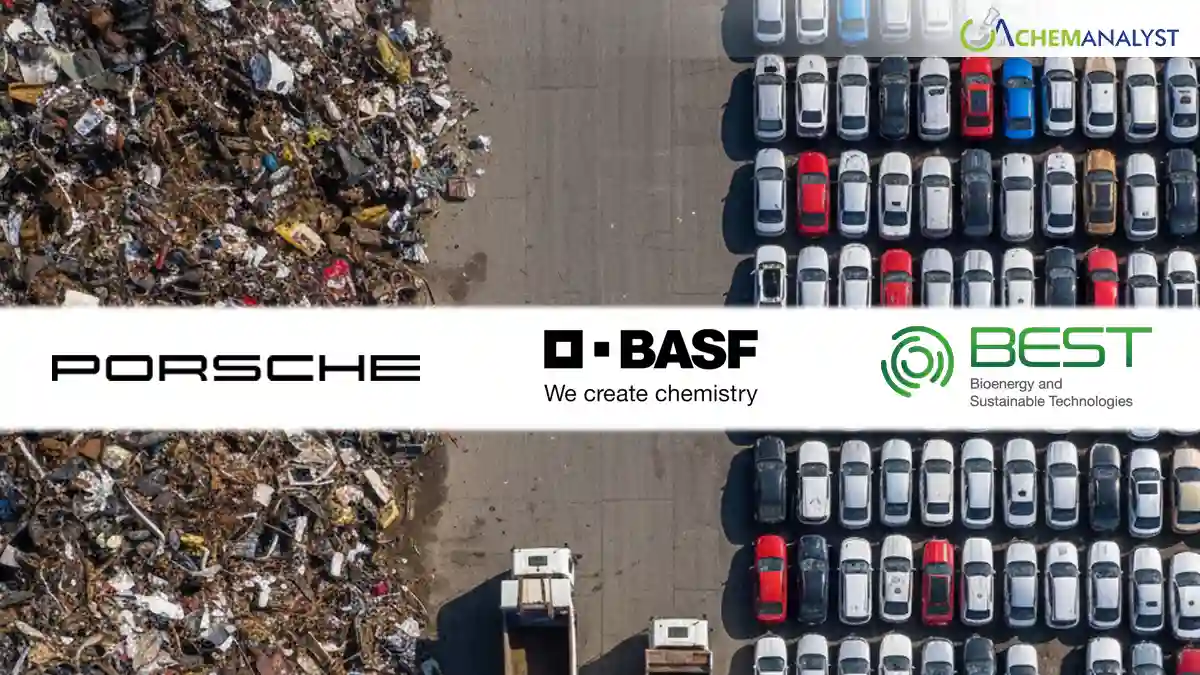Welcome To ChemAnalyst

BASF, Porsche, and BEST prove chemical recycling of automotive shredder residues viable, enabling sustainable raw materials, steering wheel production, and circular economy progress.
BASF SE, Porsche AG, and technology partner BEST – Bioenergy and Sustainable Technologies GmbH – have successfully concluded a pioneering pilot project that demonstrates the potential of chemical recycling for automotive waste. The project focused on end-of-life vehicle shredder residues (ASR), a difficult mixture of plastics, foams, paints, and films. These residues are currently handled through thermal recycling, but the new approach shows they can be efficiently converted back into valuable raw materials through gasification.
The pilot not only confirms the recyclability of these complex waste streams but also highlights opportunities to substitute fossil feedstocks with sustainable alternatives. In fact, the chemically recycled materials were incorporated into the production of steering wheels, underlining the feasibility of using them in safety-critical automotive components.
According to Dr. Robert Kallenberg, Head of Sustainability at Porsche AG, initiatives like this are essential to strengthen the circular economy in the automotive sector. By working directly with partners, Porsche is evaluating technologies that enable higher use of recycled content, open up previously inaccessible recyclate streams, and replace thermal disposal methods. Porsche has set a clear ambition to raise the share of verifiable secondary materials in vehicle production and sees projects like this as stepping stones toward closing material cycles.
A landmark achievement of the initiative is the use of the first fully non-fossil gasification process to generate new plastics. Automotive shredder waste was combined with biomass and processed into synthesis gas, which replaced fossil raw materials in BASF’s integrated production network. From there, BASF created polyurethane formulations through its mass balance approach, ensuring traceability and certification of recycled inputs.
BEST GmbH, which provided the advanced gasification technology, explained that the plant had previously used biomass such as straw or wood for syngas production. In this collaboration, the same method successfully converted complex mixed plastic waste with biomass into synthetic crude oil (“syncrude”). Dr. Matthias Kuba from BEST emphasized that this solution offers a viable alternative to incineration, capable of producing high-quality feedstocks for new plastics.
BASF highlighted the importance of keeping recycling technologies diverse. As Dr. Martin Jung, President of BASF’s Performance Materials division, noted, a range of solutions—mechanical, pyrolysis, depolymerization, and gasification—are necessary to meet recycling goals. Mechanical recycling remains the priority, but chemical recycling can handle waste streams unsuitable for mechanical methods. Jung stressed that an appropriate regulatory framework will be crucial for scaling these technologies in parallel to reduce landfilling and incineration of plastics.
By integrating chemical recycling into large-scale production facilities and certifying outputs through internationally recognized systems like ISCC PLUS, the partners demonstrate that high-performance recycled plastics can meet stringent quality and safety requirements. This achievement strengthens the case for expanding chemical recycling as a complementary path to traditional methods and marks an important milestone in advancing sustainable automotive manufacturing.
We use cookies to deliver the best possible experience on our website. To learn more, visit our Privacy Policy. By continuing to use this site or by closing this box, you consent to our use of cookies. More info.
